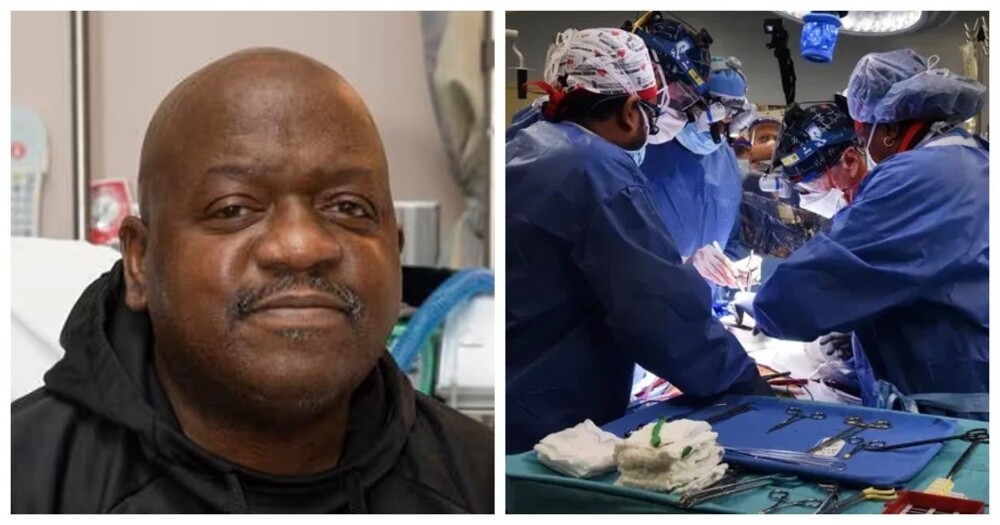A man with a kidney transplanted from a genetically modified pig died 2 months after the operation (6 photos)
He was the first to go through such a procedure. 
In March, American surgeons for the first time in the world transplanted a pig kidney with a modified genome into a person. The experiment was carried out on 62-year-old Richard Sleiman. 
Richard Slayman
He suffered from kidney failure for many years and was on hemodialysis (when the blood is purified through an artificial kidney machine) for 7 years. Previously, Sleiman had been transplanted with a donor kidney, but after five years it failed and he returned to dialysis. 
The pig kidney transplant operation was unique. Previously, endogenous porcine retroviruses were removed from the organ, 7 human transgenes were added and immunological compatibility was improved. Everything should have been ok.
And so it happened. 
The kidney took root and started working. The patient even got out of the hospital bed and began walking along the corridor. He was even given a kind of guarantee for the kidney: experts stated that it would work for at least 2 years. Then it can be replaced with a new analogue, which will be even better. The doctors rejoiced and said that this was a revolution in medicine - soon the modified organs would be put on stream and everyone in need of a transplant would receive them without any problems.
And then the patient died. 7 weeks have passed since the surgery. 
Sleiman's relatives are not offended by the doctors:
Their tremendous efforts in performing xenotransplantation have given our family seven more weeks of life with Rick, and the memories made during this time will remain in our minds and hearts,” they said.
Well, the surgeons said that “there is no indication that the patient’s death was a result of the transplant.” At the same time, the head of the transplantation department, Leonardo Riella, admitted that after the transplant, Sleiman began to experience rejection, but this was stopped with the help of steroids. And when he was discharged from the hospital, the man was cheerful and cheerful.
Mr. Sleiman will forever remain a beacon of hope for countless patients in need of transplantation around the world, and we are deeply grateful for his trust, the doctors added. 
However, Sleiman could have died from concomitant diseases. For example, he had diabetes and thrombosis. But skeptics believe that the kidney is to blame - they made a fuss about the genetically modified organ, but it turned out to be of no use.
Although why none? The patient still lived with her for seven weeks.
























